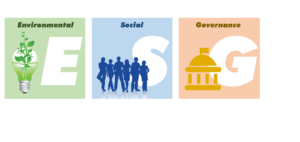The World Economic Forum in Davos, Switzerland, draws an interesting and diverse crowd. Yesterday I wrote about the young, social entrepreneurs found there by New York Times‘ columnist Nicholas Kristof [The Rise of the Social Entrepreneur]. Most of those young people are relatively unknown. The Forum also attracts big names, however, like Bill Gates, the founder of Microsoft. John Markoff reports that Gates lectured a packed house on his social philosophy [“Bill Gates: Social Philosopher,” New York Times/International Herald Tribune Davos Diary, 24 January 2008].
“Bill Gates [has taken his] first steps toward transforming himself from software baron to social philosopher. His new effort is based on a public challenge he issued during his evening address to corporate executives, in which he urged them to pair the self-interest that is the hallmark of capitalism with interest in the welfare of others, which he asserted was a second important force of human nature. Mr. Gates quoted an early work of Adam Smith to buttress his claim that humans are just as interested in insuring others’ fortunes as their own. ‘I’m an optimist, but I’m an impatient optimist,’ he said during his speech. ‘The world is not getting better fast enough, and it’s not getting better for everyone.’ Coupled with the $33 billion foundation that he has set up with his wife, Melinda, the new Gates philosophy is a radical shift from the world view he evinced during several decades as a fierce competitor in the personal-computer software industry.”
I have noted before that all entrepreneurs are optimists. They have to be. Only someone with an optimistic outlook can boldly ask their friends, family, banks and venture capitalists to invest in their dreams. I think it’s fair to say that most entrepreneurs are also impatient. They expect great things to happen quickly, at least entrepreneurs in the information age do. Gates’ self-designation as an impatient optimist is a good description of many of those newly wealthy people who have begun to re-invest in society [see my post Philanthropy at the Top of the Economic Pyramid].
“During a telephone interview before his address, Mr. Gates pointed to improved health care as the most effective mechanism for lowering birth rates and thus for indirectly having a positive impact on standards of living and quality of life for world’s poorest billion citizens. ‘Things you do with health really are the most important intervention,’ he said. Mr. Gates acknowledged that he expected a skeptical reception for his plan, but said he also expected that would change as concrete examples of success emerged. He made reference to the power of extending low-cost wireless networks into developing countries to bring about significant social and economic changes. ‘Once you get a country bootstrapped, it’s amazing what happens,’ he said.”
My colleague Tom Barnett and I have been preaching the benefits of connectivity for a long time. We wholeheartedly agree that once people get connected “amazing” things happen. In a follow-up article, Markoff notes that many people have been working to achieve a vision similar to Gates’ long before he issued his challenge to business leaders in Davos [“Many Are Already at Work on Fulfilling Gates’s Vision,” New York Times, 30 January 2008].
“Bill Gates’s bold Davos challenge to the world’s capitalists last week should have come with equally bold footnotes. ‘There are billions of people who need the great inventions of the computer age,’ he asserted. ‘Breakthroughs change lives only where people can afford to buy them.’ Conspicuously missing from the appeal, which asserted that human nature is not just driven by greed but also by concern for our fellow beings, was any reference to the work and thinking of the Nobel Peace Prize winner Muhammad Yunus. The microfinance innovator, who is known as the ‘banker for the poor,’ recently wrote a book, ‘Creating a World Without Poverty: Social Business and the Future of Capitalism,’ that foreshadows Mr. Gates’s newfound social philosophy.”
Backing this social philosophy is profit. That might sound crass, but businesses that fail to make a profit are in no position to help anybody. They can’t generate jobs. They can’t stimulate supporting businesses. They can’t invest in infrastructure. The list goes on. Yunus started his Grameen Bank to help individual entrepreneurs who had no access to credit except through usurers charging up to 300 percent annual interest, which drove them deeper into poverty’s pockets. Some of these poorest of the poor entrepreneurs have been able to claw their way up the economic chain and have hired others to help them with their small businesses. You don’t have to be a big business to provide some social good, but you do have to be successful.
Markoff is skeptical, in fact, that big businesses will, as he puts it, “change their spots.” But he points out that Yunus has replicated his success in the banking world with success in the mobile phone world.
“Last week Mr. Gates called on the executives of the largest corporations to add social entrepreneurship to their agenda, a leopard-spot-altering exercise at best. However, in challenging his compatriots, one of the experiments he overlooked was Mr. Yunus’s stunning success at Grameen Phone in Bangladesh, an effort he has pioneered during the past decade in partnership with Telenor, a Norwegian wireless carrier. Intended as an experiment to extend wireless communications networks to the world’s poorest people, the program has become a remarkable success on multiple levels. Not only did it create a class of ‘phone ladies’ who brought wealth into village communities, it has grown quickly enough and been profitable enough that Mr. Yunus said this week in Davos that Telenor had decided to break its original promise to his organization and refused to turn over control to allow the program to be run on a not-for-profit basis. The challenge now facing the firm is to replicate its success as a wireless voice provider as a wireless Internet company. This week in Davos, Mr. Yunus said that that transformation was well under way.”
Mr. Yunus calls his companies “Grameen” because he wants people to understand they are intended to help the poor. The word comes from the Bengali word “gram,” which means village. Grameen means “of the village.” How important is it to get the poor access to the Internet? Markoff believes it will help eliminate poverty like the rising sun removes dew from the grass on a frosty morning.
“The deeper implication of that shift [from voice to data capability] would be an advance from a communications to a computing revolution. As voice networks have paved the way into the farthest reaches of the emerging world, it is likely that they will quickly be followed by the Internet and the World Wide Web. That in turn could become a great leveler, bringing markets, electronic commerce and health care networks to the world’s poorest. With any luck it will mean that the emerging nations will finally complete the promise of a failed computing experiment played out by a team of French and American computer scientists in Senegal a quarter of a century ago. The original idea was that computing technology would make it possible to skip a stage of economic development, with people in developing nations quickly joining the information society without having to undergo industrialization.”
The dream of jumping from an agricultural to an informational society might sound nice, but some industrialization must take place. The information age society requires an educated populace whereas an industrial age society primarily requires a healthy and strong one. Many of the societies in emerging markets will have laborers, but not necessarily educated ones. The best hope for them is to develop a three-footed model, where one foot remains in agriculture, one foot in industry, and one foot in the information services. That strategy provides them with the best possible job creation opportunities. As one generation climbs out of poverty, the next generation becomes better educated and the emphasis on jobs will shift. Markoff ends his column with both hope and concern. He writes:
“[This] brings us back to Mr. Gates’s plea at the World Economic Forum last week. Microsoft’s research lab in India, he said, was focusing on a variety of projects, ranging from low-cost wireless to new computing interfaces that will allow semi-literate and illiterate people to use computers effectively. These are great ideas, but at Davos this year there were already a proliferation of technology-driven projects in evidence, all targeted at the bottom of the economic pyramid. They indicated that over the next decade the so-called ‘digital divide’ may prove less of a barrier than previously thought. Because Moore’s Law — the doubling of chip density at regular intervals — drives down price while increasing performance, computing has reached an increasing portion of the world’s population at an accelerating rate. Today over three billion people — half the world’s population — have cell phones. This year at the World Economic Forum, wireless industry executives predicted that two billion more would be added in the next six or seven years. This underscores the increasingly rapid spread of the Internet, for what is a cell phone but a computer and a radio attached to a wireless data network? The real challenge may prove to be whether the emerging world will modernize without repeating the mistakes of Mr. Gates’s developed world that have produced climate and pollution crises.”
Had someone predicted twenty years ago that half of the world’s population would by now have cell phones, that person would have been considered delusional. We don’t know how the world’s poor will use the Internet; they have certainly been creative in their use of the cell phone. I think it is safe to predict, however, that they will also do surprising and beneficial things. The world may be about to change for the better.




